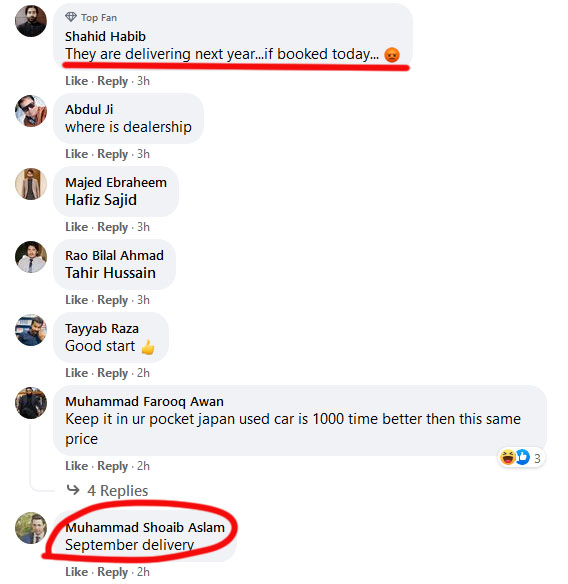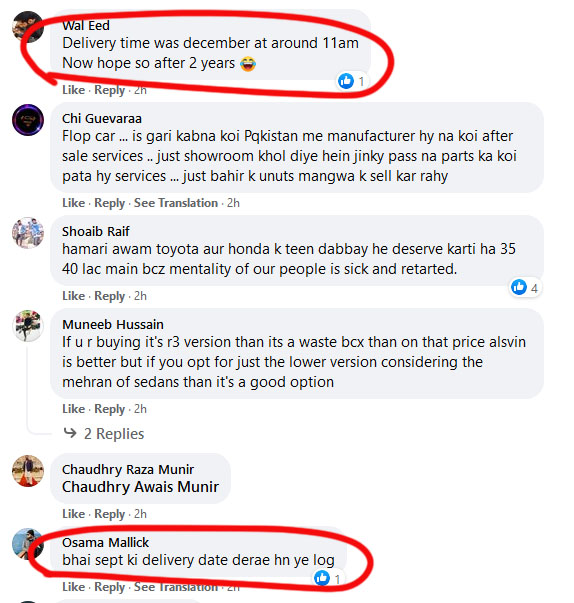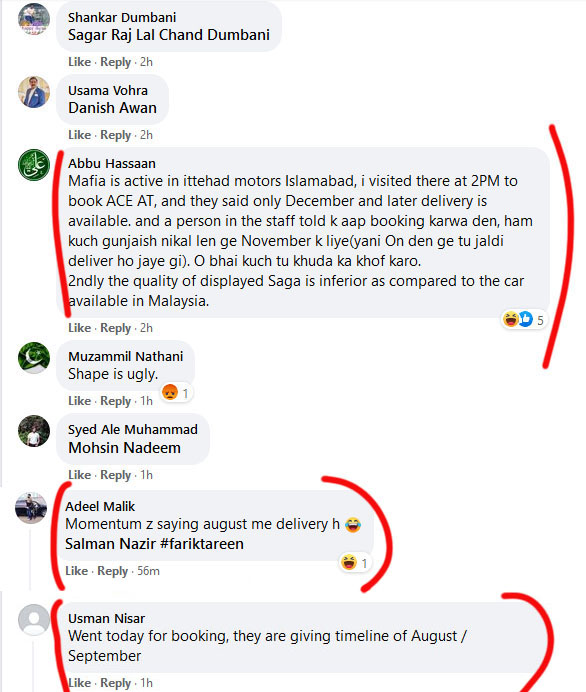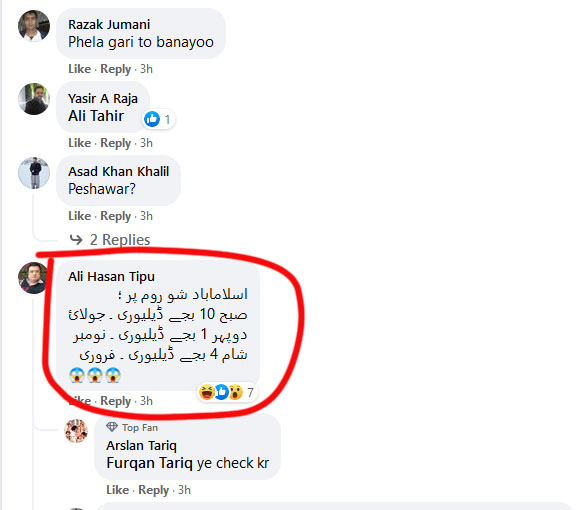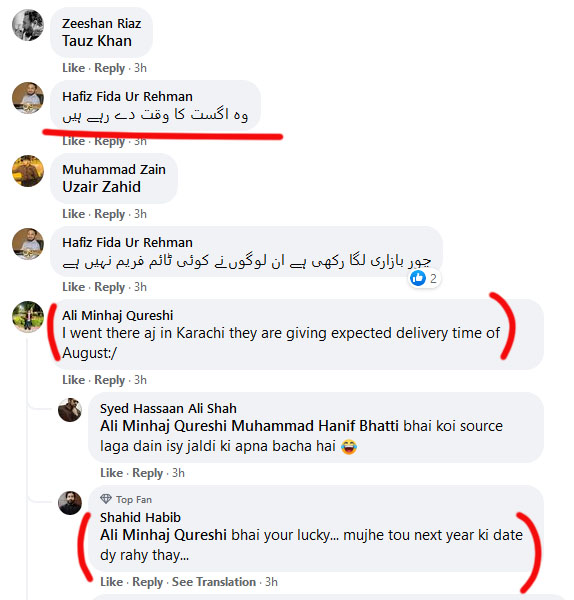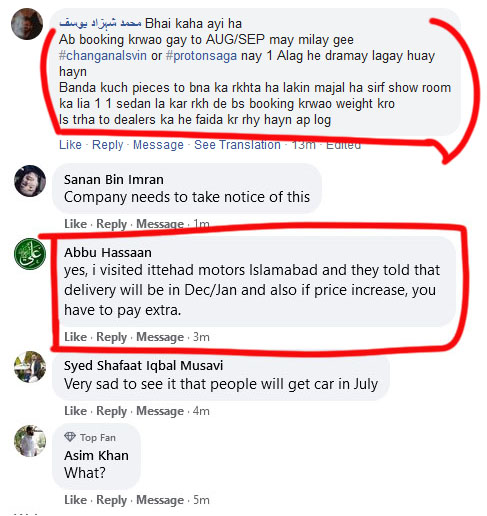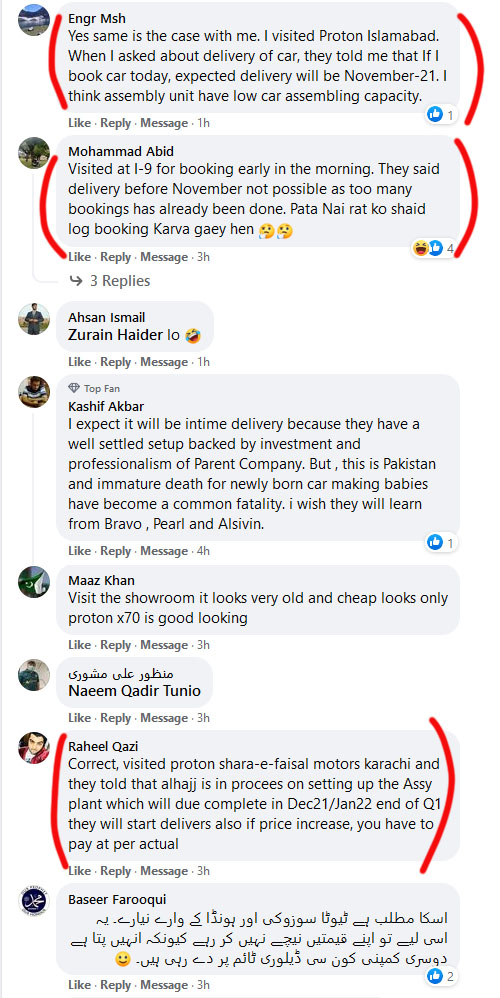Rejoice! We are now on our second auto policy. These (two) auto policies have enabled the introduction of new car brands into the Pakistani market with more cars and brands on the way. More and more each day, the auto sector in our automobile starved nation is moving towards normalization where brands establish themselves through innovation, hard work and by bringing value for money quality and reliability, through their products, for the general masses.
At least that is what the official rhetoric says and what I, and many like me, would like to believe and wish for to be true. The truth of the matter is, once you really start to look into it and really concentrate on the details and nuances, the picture does not seem so rosy anymore. Yes, new cars and car brands are coming to Pakistan, but it is the prevalent method which they have adopted to introduce themselves into our market that leaves much to be desired. It is a method that is inherently flawed and very risky for the average consumer in Pakistan’s current auto industry environment.
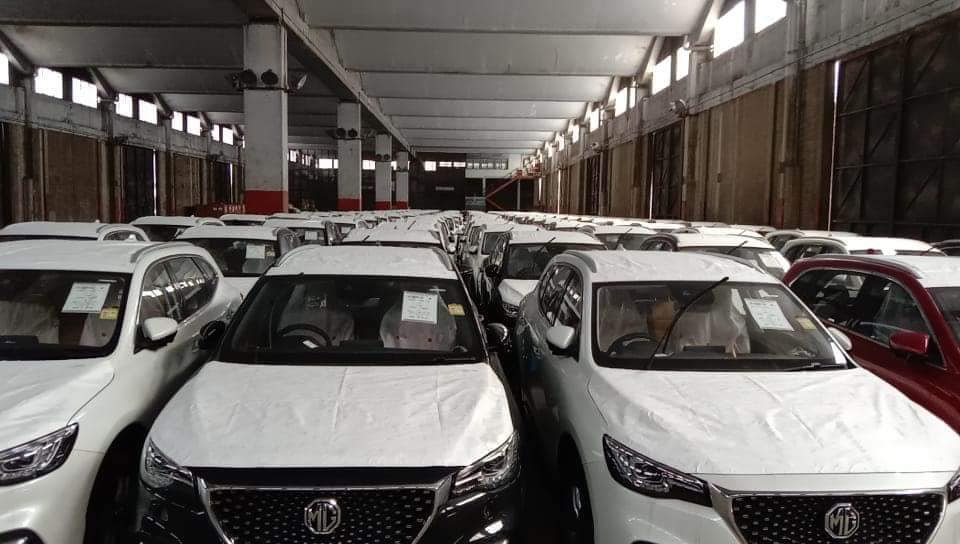
As you would know, nowadays, many companies have opted to introduce their vehicles by first introducing the CBU units of said vehicles. The main reason for this is because the previous auto policy gave them the incentive that they could import a certain number of CBU units of their target vehicles to introduce into the local market while they were in the process of establishing their local assembly plant.
In essence, to test the waters and gauge the response to their products in the market. The initial batch of the CBUs allowed, which were around 400 units, would be at very low custom duties and taxes. The policy also gave them the option which stipulated that any CBU vehicles imported above the original limit of 400 units, would be charged at full custom duties and taxes.
Related: The Bubble Launch of Proton Saga
This has unfortunately opened up a whole new can of worms for the local car buyers. The companies, in order to establish their name/brand and, in my opinion, to satisfy a very basic requirement of any corporation i.e., basic corporate greed, have opted to take massive amounts of booking from their customers. In their haste to get the booking and to start their revenue stream, they have over committed and are now stuck with orders that they have no way of fulfilling in the timelines that they originally promised. Due to the pandemic and due to the shortages cause by the pandemic, their timelines have been shattered.
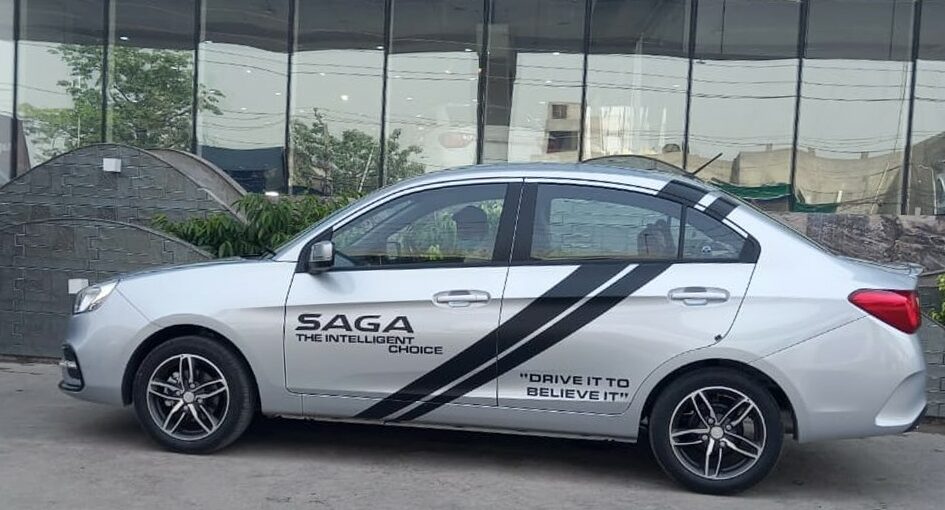
In light of the said issues with fright delays and costs increases, with chip shortages and other raw materials shortages; If they had opted to do the right thing and, for the time being, had stopped taking more bookings because they knew they could not deliver, it would have been fine. The Pandemic caught everyone by surprise, they took orders at the start but, due to the problems, they opted to stop till further notice or till they were sure that they could meet the demand. That would have been the right way.
Related: Is Pakistan a 200,000 Vehicles per Year Market?
But alas, such noble thinking was not to align with their corporate agenda. Oh sure, they did make the futile gesture from time to time of stopping to take new orders, but that soon ended every time and new orders were taken in as soon as they could. This has caused vehicle delivery times to sky rocket, with customers having to wait 6 to 8 to even 10 months to get their vehicles. There have been reports of situations where cars have been booked since December last year that still have not been delivered to the customers.
Also, because only partial payment has been taken by the company, any price hike during the wait period, now the customer is liable to pay; Something that our original three local assemblers are especially good at doing. Now, due to the delays, in some cases, the situation has declined into shouting matches and threats of legal actions by the customers.
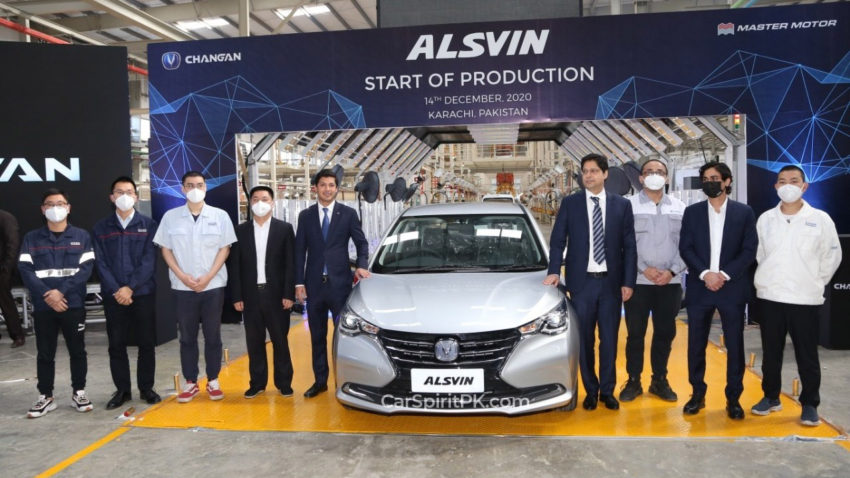
However, not all is lost on these companies. Some of them did things the right way. Automakers such as Kia, Hyundai, Changan and even recently Sazgar with their BAIC line-up, waited until their local assembly plants were fully operational to introduce their vehicles in the market. Brands such
as our local Toyota Indus or Honda Atlas have no problem doing this because they are already well established and can easily expand their assembly capacity to accommodate the new cars. Case in point, the new Toyota Yaris and the New Honda City.
Related: Economic Advisory Group Says Auto Policy is Damaging for Consumers
These companies might have the supply issues somewhat handled due to local production but the wait times for almost all cars is still very long; on average being 6-8 months. The reason is very simple. Even though the government has concentrated on local assembly, there is very little in the way of local production of parts. Nether has the government given any tangible support to the local vendors, who make parts for the local assemblers, in its auto policies. The result is that the local companies still need to import most of the parts and, in the case of the new companies, almost all parts
are currently imported; which again causes huge delays in delivery times.

The rest of the problem is caused by the own mafia who tie up all the bookings and sell the cars to the masses at very inflated prices. The government has so far been powerless to stop them and none of the companies seem to care much about the problem because they are content in showing their monthly sales figures and patting themselves on the back on regaining their sales ground which they lost due to the pandemic. Are the cars going to actual customers or are they being sold to the own mafia who sell them to customers at extreme premiums? That does not even factor into their calculations.
Related: Hefty Premium Despite Cars Sales Down by 53%
For most of the new comers, what matters is getting the customers hooked. Pakistan’s auto market, unfortunately, is starved for new blood. Especially those buyers who have the means and the interest in cars and would like to try new cars by new brands. What these companies end up doing is, through various social media platforms, they share images of their upcoming models that they “will introduce to the local market soon”. This creates the hype and the buzz amongst the car buying crowds.
Now, because the auto policy essentially allows the companies to have practically unlimited number of imports, they soon start to take orders from their customers for those CBU units. The other factor that comes into play here is the bad reputation of the locally assembled cars. This plays an important role in most people’s decisions to go for the first batch CBU imports. The most common argument being that all local cars have shoddy-built-quality. These new brands, none being Japanese and some being from China, would have even worse local assembly quality. Thus, it would be a better option to go for the CBU imports.
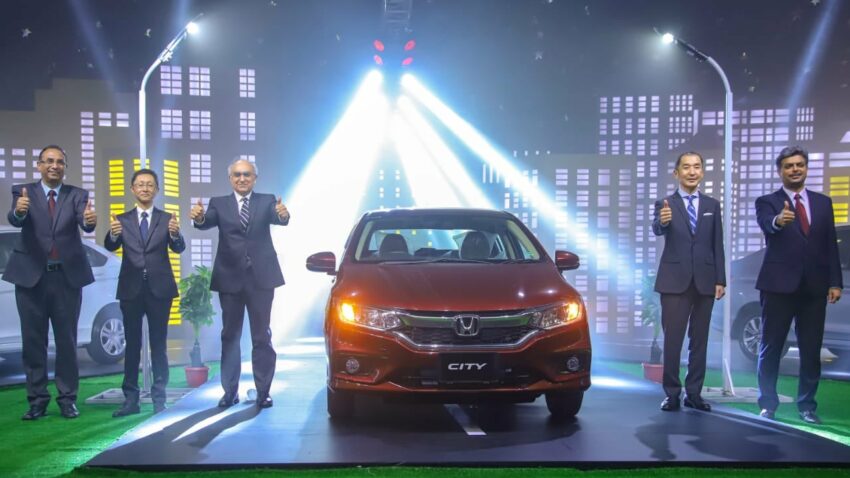
And so, starts the game of customers trying to get their hands on the cars and the companies only too eager to accommodate them by taking in as many orders as they can. Again, thanks to the government’s attitude and the auto policy’s lack of “policy”, these companies know they can get away with a lot; safe in the knowledge that the late delivery times do not carry any stringent response or penalty from the law or the government.
Related: Why Should I Buy An Expensive New Crossover?
But where do all these issues stem from. What is the source of all this “chaos”? As usual, the only place to start is at the top; with the auto policies of Pakistan. If we look the previous auto policy and then its continuation, the current policy, we really begin to see the cracks through which such practices from the incoming (or old established) auto companies are allowed to seep through.
Don’t get me wrong. The auto policies have some very sound rules for monitoring and governing the auto sector but then it turns around and creates loopholes in its own stipulations that make the policy overall less effective. For example, the original auto policy clearly outlined that any company that introduces passenger vehicles to Pakistan must ensure parts availability before the release of their vehicle line up in the market. Yet it allowed companies to sell their cars regardless of this; whether the parts were in the market or not. This important stipulation was suddenly downgraded to a suggestion rather than an important requirement.
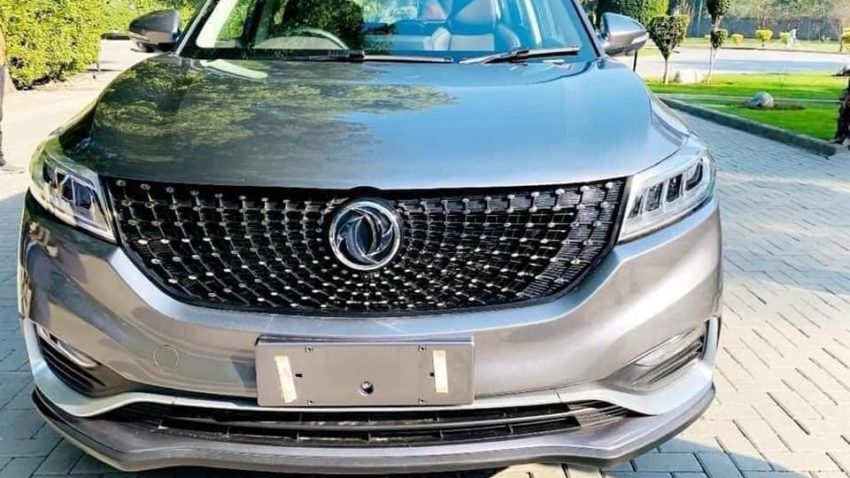
So, now we have many cars running on the roads of the big cities of Pakistan. They cannot expand into other more remote areas because parts, even basic ones such as filters etc., are not available. People in those areas have to specially travel long distances to other cities, where the new companies have presence, to get their basic parts. Not many are willing to commit.
Related: This Loaded SUV in India Costs Less than Our Suzuki Cultus
The auto policy allowed a limited number of CBU imports, at lowered tax rates, by any incoming company to establish their market presence and to gauge customer response to their brand. Yet there was no limit imposed on the number of imports they could bring into Pakistan at full tax rates.
Allowing limited CBU units was acceptable practice. Any company should be allowed to “test the waters” before deciding to jump in fully. What was not a good idea is further allowing said companies to import CBUs to their hearts content; with the only penalty being that those CBUs would be imported under full custom duty and tax.
Fun fact; All the car companies that sold their first batch of new CBU cars in Pakistan did so by calculating their price as though they were paying the full tax amount. Because of that, even now, when they are bringing in their CBUs by paying the full tax and duty, they are still making a profit. Again, there is no limit on the number of imports by these companies. Linked to the above issue. The auto policy requires the incoming companies to establish their assembly plants before the proper rollout of their vehicles. Yet, again, none of these companies are in a hurry to establish their plants any time soon. They are making their money by importing their cars and just by requesting more extensions from the government.

The government policy should have been strict on the matter by only allowing the first batch of 400 cars on low tax rate and only one other batch of 400 cars on full tax rate. After that the policy should have strictly demanded that no car would be sold unless locally assembled. That would have been in benefit of the local market. That would have lit a fire under the incoming companies to complete their assembly plants. That would have been the right way to handle the situation. But alas, that was not the way the issue was handled.
Related: Has Honda Given Toyota a Chance to Increase Yaris Prices?
In the latest budget and the auto policy, in order to curtail the bane of the very long delivery times and of the own culture/mafia in Pakistan, the auto companies were informed that they will pay a hefty fine if the delivery time exceeded two months. That was a good decision. What wasn’t so good was the fact that this was modified to add that the two months delivery time only applied in the case where a customer pays the full amount for the vehicle upfront and will not apply to partial payment cases. Lo and behold no company in Pakistan books a car on full payment.
Even sadder than that was the fact that in order to stop the own mafia the most that the government could come up with was to make the car buying experience even more expensive for the end user. In order to stop the own mafia, the government came out with the penalty of very high additional
withholding tax. This tax will be imposed on the sale of a car if the owner decides to resell the car within the first three months of ownership. This did not do much in the way of reducing the own money culture in Pakistan. Instead, it just increased the own money amount taken.
Related: Government to Tackle On Money/ Premium with Up to Rs 200,000 WHT
Instead of penalizing the companies or asking them to come up with a solution, the end user was again targeted. The government could have asked the local companies to do something similar to what Toyota Japan did with its launch of the new Land Cruiser. One car per person and/or contractually bind the customer to not resell the vehicle before 12 months. But alas, such a thing never happened. The end user was again made to take the brunt of it and the companies wiggled their way out of the situation bearing no responsibility.
Just a reflection of what the genuine customers go through
If anyone in the government is reading this; this is what happens when you allow the same people with vested interests in these policies and laws themselves, to make changes to them. You get policies and laws that become their own worst enemies. Companies are selling imports. It’s because the policy allows it. Companies are not fast tracking the completion of their assembly plants and their rollout of local assembled vehicles. It’s because they are allowed unlimited imports and are not being penalized for the delays or being actively investigated by the government for the cause of the delays.
Companies are over-booking cars by collecting huge amount from the customers. It because the government is not asking them to fast track the orders or explain the delays or why they are over booking orders when they know they cannot deliver. Parts availability is an issue in the open market. It’s because the government is opting to forget or forgo its own policy stipulations regarding parts availability in the market and the companies’ responsibility in the matter.

Companies are again raring to increase their prices after the substantial tax breaks they got form the government recently. Even the 2-wheelers, considered the “sawari” of the middle class have seen unprecedented price hikes in the last year alone. Yet, the government is least bothered to investigate the cause of the hikes or at least ask the companies to provide full documentation regarding the “unavoidable” hikes in prices. The government just takes the companies at their word.
Related: Someone’s Trash is Another One’s Treasure
Companies are businesses. Like any business, their agenda is to make profit. They will use any trick in the book to secure that profit. That is their game. If the policy designed to govern the rules to their game has built in cheat codes that the companies themselves helped to put in, imagine the chaos that would ensue.
We can see that already happening in Pakistan. The weak policies that govern these companies, that give them their right to get away with it; we should not be surprised when the proverbial crap hits the fan and the end consumer is the one who loses; always.
Contributed by: Muhammad Ali Khan– A guy who is passionate about cars and concerned about the state of the auto sector in the country. 

CarSpiritPK welcomes Guest Posts. If you have the ability to generate quality content and can write some relevant and useful piece of information to be shared with our readers, feel free to contact us at: [email protected] Send you emails titled as (Guest Post submission)

